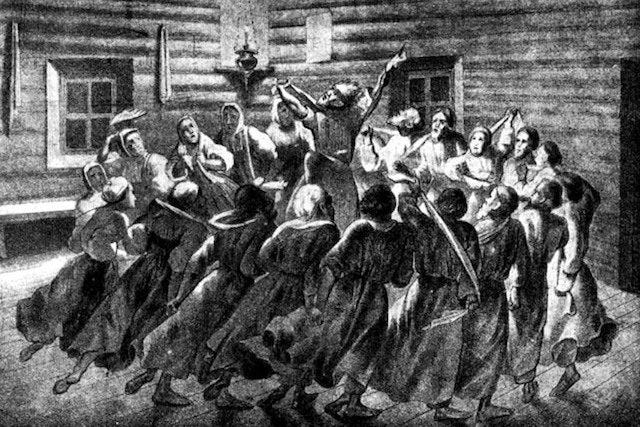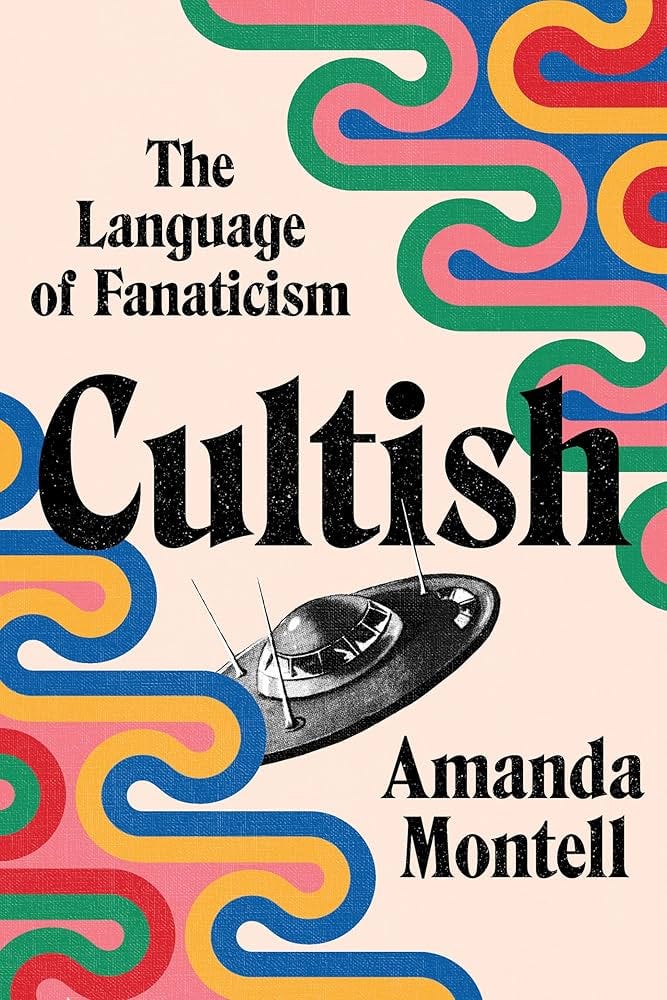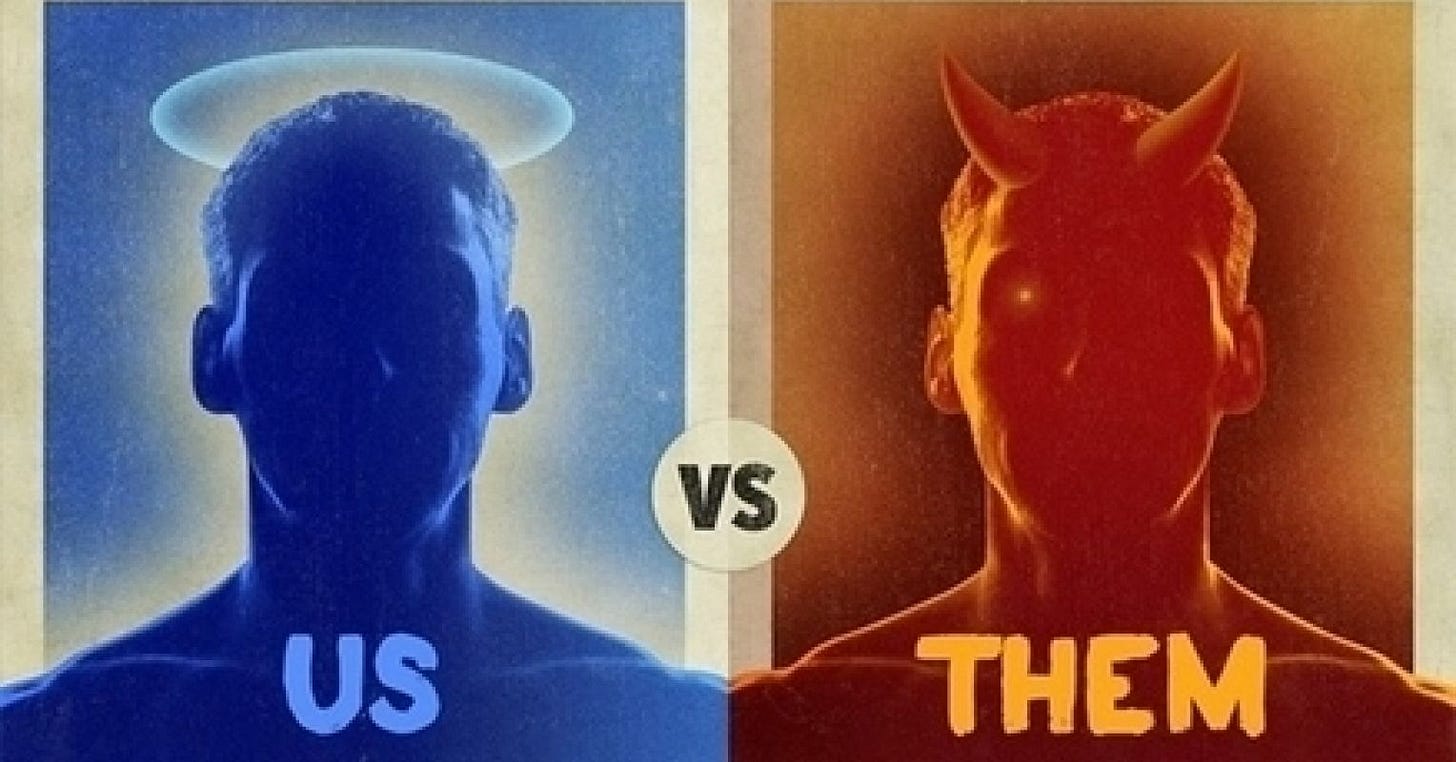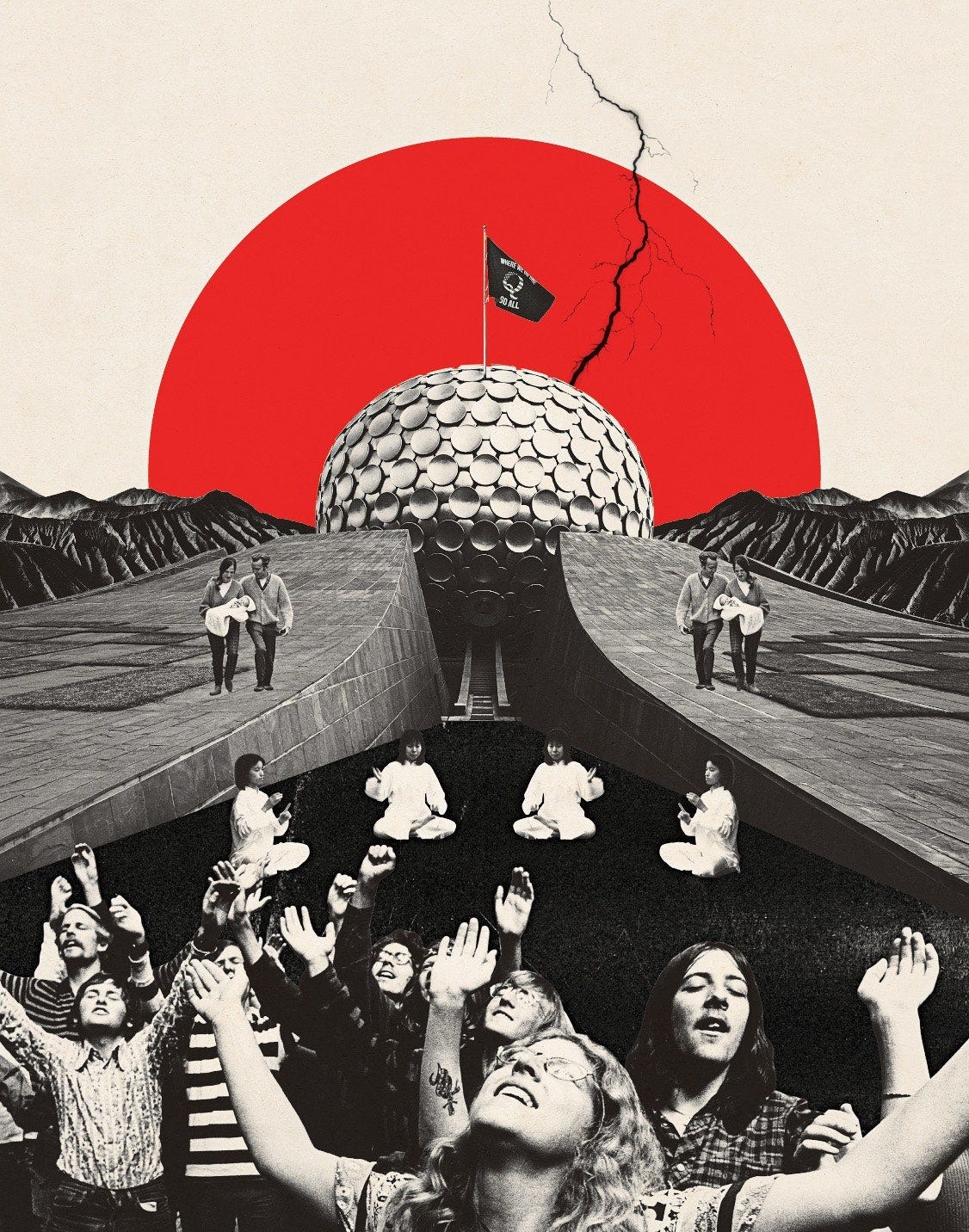Cultish Occurrences: When Critical Social Justice Goes Too Far
A firsthand account of the dystopian experience in contemporary higher education that took place at Colorado State University (CSU).
Arnoldo Cantú, LCSW is a clinical social worker and psychotherapist with experience in school social work, private practice, and currently working in community mental health seeing children, adolescents, families, and adults. Cantú was born in Mexico and considers Texas home having grown up in the Rio Grande Valley, though currently resides in the beautiful city of Fort Collins located in northern Colorado. He is the lead editor of a trio of volumes in the Ethics International Press Critical Psychology and Critical Psychiatry Series titled Theoretical Alternatives to the Psychiatric Model of Mental Disorder Labeling, Practical Alternatives to the Psychiatric Model of Mental Illness, and Institutionalized Madness: The Interplay of Psychiatry and Society’s Institutions. He's written critically not only about the idea of so-called mental disorder, but also the idea of race categories.
Introduction
Around the time I was writing this, I had just finished reading Amanda Montell’s fascinating and hugely popular 2021 book titled Cultish: The Language of Fanaticism. I had also read some reviews, one of them being this blog post written by Brittany Shields in which she suggests that “Of all the cultish groups Montell mentions, she is missing a very big one. The Woke Left.” That was something I, too, had been wondering about as I wrapped up reading Montell’s book.
Now, I hesitate to describe my recent experience in Colorado State University’s (CSU) social work doctoral program as being part of a cult (I explicitly said I disagreed with that assessment when I appeared on a well-known podcast). That’s a hugely loaded label, and highly pejorative given that I know the people around me had (presumably) good intentions about how to go about addressing complex and obstinate social problems.
However, the book, blog post, and podcast interview got me chewing on the idea some more—the main reason being because Montell herself compellingly argues for a spectrum of cultish behaviors, invoking the likes of SoulCycle, Amazon, multilevel marketing companies (MLMs), social media influencers, the classic cults like Scientology and Children of God, and more. At one point in the book, she also quotes the author Tara Isabella Burton who stated,
“If the boundaries between cult and religion are already slippery, those between religion and culture are more porous still.”
And so it is with that—the intersection between religion and ideology, academic culture, and cultish behaviors—in addition to Montell’s overview of elements of cultish behaviors that I will juxtapose with my experiences that I outlined in an article published in a recent Special Issue: A Case for Intellectual Humility, Tolerance, and Humanism: Perspectives from an Ethnically “Minoritized” Graduate Student. The reader can decide if there is merit to my hunch. (I used square quotes around “minoritized” in a tongue-in-cheek manner to convey that you can still be the wrong kind of minority individual.)
(My article and other fascinating ones can be found in the Journal of Teaching in Social Work’s Special Issue titled “Beyond Ideological Mandates: Critical Reflections on Anti-Racist and Anti-Oppressive Social Work Education”.)
Truth vs. Social Justice
In my recent article, I start off by bringing forth one of Jonathan Haidt’s classic essays titled “Why Universities Must Choose One Telos: Truth or Social Justice.” In his piece, Haidt argues that while people can pursue both—albeit, while giving “truth” primacy in order to effectively pursue “social justice”—the university must pick one: truth. I illusively push back on his argument, suggesting that both can, in fact, be the telos—in particular, the telos of a program such as the one I was enrolled in.
However, as I try to make clear with the help of verbatim emails from my professors—in addition to outlining some of my observations while I was a student—my claim is qualified:
“I have been able to ascertain that when I say how truth and social justice can co-exist, what I mean is that a certain flavor of “truth” can result in—and co-exist alongside—the zealous pursuit of a certain flavor of “social justice.”
And as I later suggest in my description of contemporary ideologies and philosophies (i.e., the “flavors” such as critical social justice, woke-ism, identity politics, etc.) that have taken foothold in universities, “It is no wonder that some have deemed contemporary ideologies and worldviews found in universities to be a kind of religion, puritanism, or fundamentalism—and, frankly, I think it is justified.”
Cultish Behaviors?

In Part 2, Chapter 3, Montell provides an overview of cultish language. For starters, she suggests that the “first key element of cultish language” is “creating an us-versus them dichotomy.” I’m sure many of us are familiar with the oft-stated dichotomy of “oppressor vs. the oppressed,” the overly simplistic and binary way of seeing the world and all people on our planet. But how about one of my experiences in this program during which (I can’t remember if it was a student or the professor—most likely a student) someone made the comment out loud of, “Ew, white people”? The professor definitely did not address the comment—just went along with it with a grin.
Or how about when I sat in on a curriculum meeting and observed a discussion between faculty about how certain core classes should, instead, be taught in-house—as opposed to students taking them in other departments across the university—because other disciplines would not be able to “de-center whiteness” as effectively?
Racialized white people are seemingly “them” in the “us vs. them” dichotomy. Other academic departments are also evidently part of the “them.”
Montell continues by suggesting that “loaded language works by twisting the meaning of existing words until the new significance eclipses the old one.” In a fellowship application essay, I attempted to explain how my research interests could be seen as “anti-oppressive” and help support a population I am familiar with—the Hispanic, undocumented, and immigrant community—by recognizing crucial contextual factors I’ve observed in the field as an actual social work practitioner, such as immigrant status, language barriers, and power imbalances. What did one of my professors think?
When we met my comments related to macro level considerations related to, that we cannot disentangle systemic oppression from the problems under study in social work. In other words, the mental health system along with all other systems in the US are predicated on an oppressive history of slavery, colonization, and genocide. Therefore the fabric/structure of all US systems was built on this legacy; inequity is therefore “baked into” these systems if you will. As a result, even when focused on micro level issues like mental health experiences at the individual level, you cannot disentangle the system in which mental health care is provided…In a time of uprising and rebellion supporting Black Lives Matter and calling for justice in response to state-sanctioned violence against Black communities, scholars must be conscientious of how our science can either reinforce or deconstruct deficit narratives about communities of color (and other marginalized groups).
My view of how my research interests could be “anti-oppressive” clearly did not fall in line with how my professor was making sense of it—almost as if there is the right way to engage in anti-oppressive research.
Lastly, Montell reminds us about “thought-terminating clichés” or “semantic stop signs”: that is, methods used to “[halt] an argument from moving forward by discouraging critical thought” and “hastily dismiss dissent or rationalize flawed reasoning.” She adds that, “Language is a leader’s charisma. It’s what empowers them to create a mini universe—a system of values and truths—and then compel their followers to heed its rules” (emphasis added). For that, I have two bizarre and disconcerting experiences worth sharing so that the reader can determine their relevance.

At the start of 2023 during winter break, I was asked to meet with a high-ranking professor (“Professor A”) over coffee. During this meeting “that lasted for over 2 hours during which my values and beliefs were questioned, I was also explicitly asked if I did or didn’t believe in systemic racism, structural oppression, if I was taking seriously the idea of anti-oppressive research, et cetera” (again, the reader can consult my article for my full accounting of the story and admission of my other sins).
Shaken up and demoralized, later when the Spring semester started and we were asked to complete a survey to inform the professor (“Professor B”) about our preferred learning styles and anything else worth sharing, I dropped this link in the survey and asked if academic freedom can be respected given my experience with having my beliefs and values challenged just a couple weeks prior. Professor B’s response via email?
Hi Arnold! I hope the beginning of the semester is treating you well! I am writing to check in about the survey that you filled out for the beginning of class. Thanks for doing that. In it, you mentioned that supporting academic freedom is important for you to feel welcome in class. I was thinking it was important to have a conversation about what this means to you, because I can see it going many different ways. [Professor A] and I checked in about the start of class and mentioned that the two of you have had an ongoing conversation about social justice and academic freedom so I am cc’ing [Professor A] here so we’re all on the same page. Could we set up a time to check in sometime soon? See you tomorrow!
Is it not within the realm of possibility to suggest that both semantic stop signs and compelling behaviors were enacted toward me? I still can’t make sense of how academic freedom can be seen “going many different ways”—perhaps someone can help steelman their approach. Fortunately, however, that meeting never happened due to Graduate School intervention.
Conclusion
There’s plenty more I observed and experienced that I mention in my article. And though I really resisted the “cultish” descriptor, I can’t help but draw some parallels after reading Montell’s book. As Shields observes,
One of the criteria of cults that Montell regularly refers to in her book is the ‘us vs them mentality’. Hero worship. Redefining words. Buzzwords. Hashtags. All of these have been employed by the woke agenda to control the narrative around several hot topics. This is intentional and goes largely unnoticed. People want to be part of something important or at least not associated with what’s ‘bad.’ So we adapt our language to fit the ‘us’ and avoid the ‘them.’
Unless someone else can better explain these interactions and experiences in more charitable ways, perhaps we may be inclined to believe that my experience in CSU’s social work doctoral program can, too, just as easily be placed on Montell’s spectrum.







I read this book a few years ago and was disappointed that the author had spent the latter half of the book talking about something irrelevant (exercise) and not progressivism/wokism. But I realized that the author probably has sympathy toward this group which is why there is such a glaring omission.
I wish people would use Chomsky as an example. A prominent scientist and a prominent activist who kept his science and his activism separate, and therefore maintained credibility in both.
The cultish language is such a giveaway. And it's funny, that these people are talking about helping marginalized groups but they use pedantic obfuscated language that only people with graduate degrees understand.